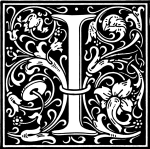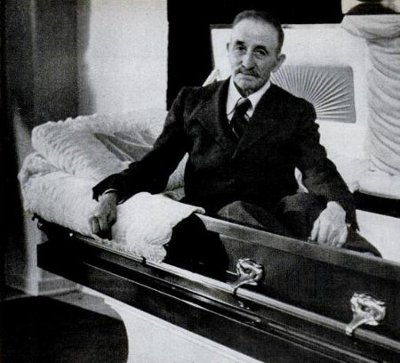“On being asked by an F.R.S. — no less — why modern poetry was so little inspired by Science. To the tune of The Bailiff’s Daughter of Islington.”
Now there once was a lass and a very pretty lass,
And she was an isotope’s daughter
And they called her Ethyl-Methyl, for her mother was a gas
Made of Ch17 and water.
She was built on such lines, perhaps parallel lines,
(For Einsten says they’ll never meet),
And her lips resembled the most delicate sines,
And her cheeks were like cosines sweet.
Her hair it was like transformers in a way,
And her eyes like two live coils,
While as for her spectrum, I always used to say,
“I could watch it till it boils.”
Though at making of love I never was a dab,
We were soon on the best of terms,
In fact the first time that I saw her in the lab,
We generated n2 therms.
Her metabolisms I shall never forget
Nor her parallaxes till I die,
But the sad thing is that, whenever we met,
The sparks they used to fly.
Alas and alack! it was ever, ever thus;
We had perforce to part,
For she — she was a minus, and I — I was a plus;
In fact we were poles apart.
Still, Scientists all, I am sorry I was wrong,
And ±0.3
With the Higher Hydrocarbons now shall decorate my song
Instead of the willow-tree.
— Sir J.C. Squire, in Punch, 1936





